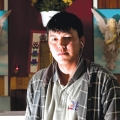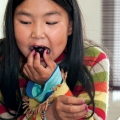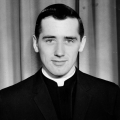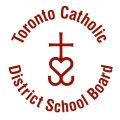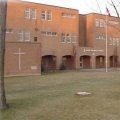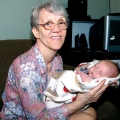TORONTO - Citing the absence of a Catholic parents’ voice in the debate over Ontario’s equity policy for schools, a Toronto-based group of parents was formed to get the opinions of Catholic parents heard in the corridors of power.
Teresa Pierre, spokesperson for the Ontario Catholic Parent Association, said the group was formed about three months ago in Toronto because Catholic parents’ voices were silent during the recent acrimonious debate on the Toronto Catholic District School Board’s equity policy and wasn’t being addressed by other parent groups.
“We have some remaining concerns addressed in amendments still to be considered,” Pierre said.
In May, the TCDSB passed an equity and inclusive education policy that included provisions against discrimination based on sexual orientation. It also prohibits any form of social or cultural discrimination in its schools. Amendments have been proposed to that policy that would place even greater emphasis on the right of Catholic schools to operate according to Catholic religious beliefs. These will be voted upon at the Aug. 31 board meeting.
Padre finds military chaplaincy ‘exciting way to serve God’
By Luc Rinaldi, The Catholic RegisterTORONTO - When Canadian troops return home from Afghanistan in late August, chaplain Francesca Scorsone will finish a six-month stretch of working the “most fulfilling job” she’s ever had.
“Padre” Scorsone, a military chaplain stationed at Kandahar Airfield, has been ministering to fellow members of the Canadian Army there since March. As part of the last rotation of air support to be deployed in Afghanistan, she provides a faith presence through liturgy and Catholic pastoral care, and, just as importantly, an open and sympathetic ear to all.
“A padre walks with the people that they’re with,” said Scorsone, referring to the traditional name of a military chaplain. “My role is to be a mentor, moral guide and someone who they can talk to when they need someone to talk to.”
It’s not an uncommon need given the occupational hazards. Troops come to Scorsone with their worries, fears and doubts, she told The Catholic Register by phone from Kandahar. Whether it’s concerns about family back home, questions of faith and ethics that arise while at war or simply a story that needs to be shared, Scorsone is there for support and advice. And while she’s not trying to convert anyone, her Catholic roots certainly shine through.
Youth in search of hope in Tulita
By Michael Swan, The Catholic RegisterTULITA, N.W.T. - On the edge of turning 22, Chad Bonnatrouge doesn’t drink, doesn’t smoke, hasn’t touched drugs, lives with his grandparents and sticks to himself. He graduated from high school in Tulita a couple of years ago and is uncertain what his next move should be.
He’s got family in Vancouver and they have invited him to join them. He’s been there once and is unsure whether he wants to go back. For now he stacks firewood and fetches groceries for his grandparents.
He volunteers for the Tulita Land and Financial Corporation. The volunteer hours qualify him for payments from the corporation, which administers funds from the 1994 Sahtu Dene and Metis Land Claim Agreement.
Sr. Celeste Goulet remembers how at his graduation ceremony the whole village roared in approval when Bonnatrouge’s name was called. Graduation for this quiet, lonely kid was perhaps not a sure thing.
Sr. Tromblay tries to bridge Tuktoyaktuk’s rich-poor divide
By Michael Swan, The Catholic RegisterTUKTOYAKTUK, N.W.T. - Kedra and Destiny Kimiksana got to try cherries for the first time at the Catholic mission house in Tuktoyaktuk with Sr. Fay Tromblay. Once they had been warned about the pits, I tried teaching them “Tinker, tailor, soldier, sailor...” Of course the seven- and eight-year-old girls didn’t know what a tinker or a tailor was. In fact, beggar man and thief were also new vocabulary.
After a couple of tentative bites and discovery of the first pit, both girls decided cherries were pretty good. They also got to try a bit of avocado, which Tromblay added to their salad. Salad is something they only eat at Sister’s house.
They liked the avocado, but found it difficult to pronounce.
Kids in Tuktoyaktuk are familiar with traditional Inuvialuit foods. They love tingmiaq (goose), pipsi (dried fish) and muktuk (skin and blubber of a whale). They eat a lot of imiraq (soup made from caribou, goose or fish).
For generations, Sr. Celeste is connection to the Church
By Michael Swan, The Catholic RegisterTULITA, N.W.T. - When Sr. Celeste Goulet was nine years old her dad died. She grew up a fat, lonely kid in Guelph, Ont., who was paradoxically good at sports. Badminton was her game.
When she was first attracted to religious life, Goulet went looking for an order that ran an orphanage. By the 1970s there weren’t many of those left. Some mostly Polish Franciscans, the Felician Sisters, were the last women’s order in North America that still owned an orphanage.
By the time Goulet arrived in Tulita 32 years ago, the young sister had a degree in early childhood education and a conviction that what happens to children matters.
She spent a year talking over options with Tulita parents — do you want a day care or a pre-school? She carefully explained the difference. The parents opted for education that would increase their children’s chances of success in school.
Re-examining a 400-year relationship
By Michael Swan, The Catholic RegisterTULITA, N.W.T. - Felicia Bravard and her friends Brendan, Stacy and a girl too shy to give her name to a stranger are passing a summer day in classic teenage style. I found them moseying the gravel roads of Tulita sharing a joint at 10 in the morning.
They offered me a toke, an offer not often made to middle-aged Church journalists. I declined.
If Felicia was a third-generation Canadian with an Italian or Irish background, this would probably fall into the category of teenage misbehaviour — a phase. In a First Nations community in the North, where nearly every adult is either an active alcoholic or counting the weeks, months or years of their sobriety, the 10 a.m. marijuana is more troubling.
The Truth and Reconciliation Commission of Canada is in fact trying to shape a different future for Felicia and her friends. The commission is in the midst of a five-year mandate to create a public record of the tragedy of Indian residential schools and to examine the ongoing fallout of a 130-year policy that separated 150,000 native children from their families. By witnessing the stories of many of the 80,000 survivors and documenting the cultural and societal devastation to families torn apart, the TRC hopes to cultivate reconciliation between aboriginal people and the rest of Canada. Over time, they hope to build a better life for teenagers like Felicia.
50 years of Jesuit joy for Prendergast
By Deborah Gyapong, Canadian Catholic NewsOTTAWA - When Ottawa Archbishop Terrence Prendergast left Montreal for Toronto on Aug. 13, 1961 to begin his novitiate in the Society of Jesus, he admitted shedding some tears aboard the overnight train.
“I think it was just leaving my parents and my friends,” he said. “I knew I wasn’t going to be back for some time.”
But he awoke the next morning to a new adventure and a sense of joy that has accompanied him, with a few exceptions, ever since.His life as a Jesuit has taken him from Toronto to Montreal, on to Halifax, Regina and Ottawa with sabbaticals in Rome and Jerusalem. A Scripture scholar, he has moved from teaching high school students to teaching university students and seminarians in Toronto, Halifax and Regina, and to teaching the faithful at large in the episcopacy, first in Toronto as an auxiliary bishop, then to Halifax and Ottawa as archbishop.
“My life has been very happy,” he said. “Even with a few crisis places, basically it’s been happiness every day.”
Province will respect Catholic rights: Dombrowsky
By Sheila Dabu Nonato, The Catholic RegisterTORONTO - The right of Catholic schools to remain faithful to Catholic teaching on matters of marriage and sexuality will be respected under Ontario’s new equity and inclusive education policy, says Education Minister Leona Dombrowsky.
“There’s no question that in Catholic schools, they have the constitutional right to teach their faith in their schools and that has not changed,” Dombrowsky told The Catholic Register.
But Dombrowsky also said all school boards will be required to provide support groups for gay students. “We’ve made that very clear as a government,” she said. “It’s not an option for school boards on whether or not they will have a group to support students dealing with issues around sexual orientation.”
Although such support groups are often called gay-straight alliances, Dombrowsky said Catholic schools are not required to use that name. There has been considerable objection to importing the gay-straight alliance terminology because of concerns that the name implies acceptance of the gay lifestyle.
Parents' group seeks apology from TCDSB superintendent
By Sheila Dabu Nonato, The Catholic RegisterTORONTO - A Toronto-based parent group is crying foul over comments made by a Toronto Catholic board superintendent which they claim makes light of Catholic parents' concerns about the board's new equity policy and “appear to mock the teaching of authentic Catholic doctrines.”
The Ontario Catholic Parents' Association criticized remarks by superintendent Patrick Keyes to Xtra, a gay and lesbian magazine. In a June 22 article, Keyes was quoted as saying, “every time a teacher spoke about homosexuality they had to also say to students, ‘By the way, you’re intrinsically disordered.’ ” OCPA is seeking an apology from the board.
"I cannot envision any Catholic teacher ever saying what Keyes imagined," said Teresa Pierre, spokesperson for the OCPA. "This is a caricature of what the catechism teaches, and it is unacceptable to find it attributed to an administrative officer charged with handling the Church’s doctrines in a respectful manner.”
Pierre added that “the catechism does not teach people that people are disordered by homosexuality, only that the acts are disordered.”
TCDSB seeks funds for rebuild of Dante Alighieri
By Sheila Dabu Nonato, The Catholic RegisterThe Toronto Catholic District School Board is looking for a new school building at Dante Alighieri Academy as opposed to the addition the province wants to fund to alleviate overcrowding at the Toronto high school.
The board will be making a business case to the Ontario Ministry of Education this month for additional funding for a new building for students at the current site near Dufferin Street and Lawrence Avenue West, said local trustee Maria Rizzo.
The TCDSB is seeking at least $12 million on top of the $16.4 million allocated by the province for an addition so that Dante Alighieri will be able to accommodate all of its 1,300 students at a single site. For years, Rizzo said students have been dispersed over three locations, with the board renting space at Bathurst Heights Secondary School, Sir Sanford Fleming Academy and the Columbus Centre.
Linda Gibbons unrepentant for challenging abortion
By Sheila Dabu Nonato, The Catholic RegisterTORONTO - Long-time pro-life activist Linda Gibbons called for Canadians to stand up against abortion and protest the curtailing of pro-lifers’ freedom of expression on abortion at the June 25 Toronto Pro-life Forum hosted by Campaign Life Coalition.
Gibbons said a “critical indignation” was needed to protest Canada’s abortion laws that are “promoting crimes against humanity.”
She also slammed the 1994 Ontario Supreme Court injunction barring pro-life activists from picketing, sidewalk counselling and interfering with access to abortion services or the “economic interests” of downtown Toronto clinics, a law that has led to her being arrested 20 times and imprisoned for 10 of the past 17 years.
“They are interfering with my freedom and I am offended by that,” she told the crowd of 185 participants at the Hotel Novotel who attended the two-day conference.
“In a free society, freedom of speech is a critical element. Why are we arrested for words when acts of murder are committed there?”




